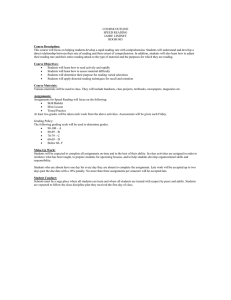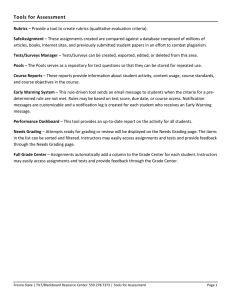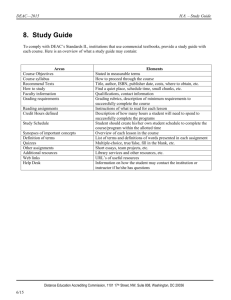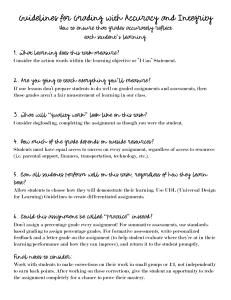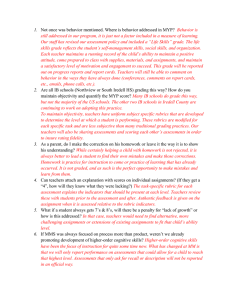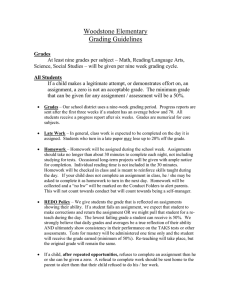Grade Queries - University of San Diego Home Pages
advertisement
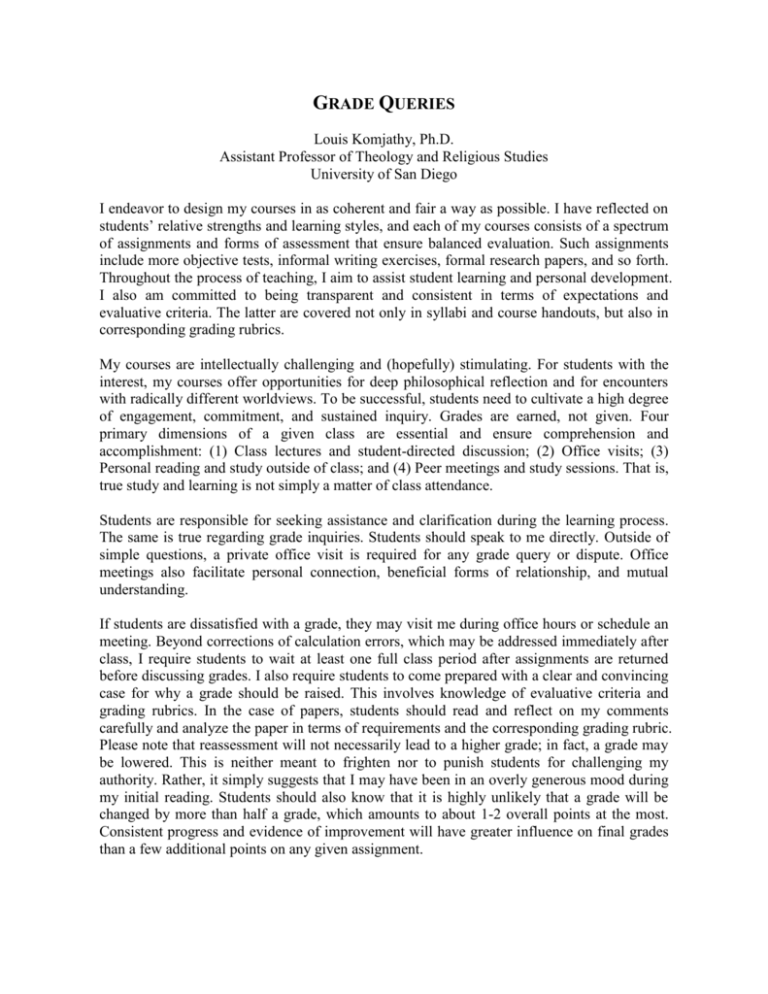
GRADE QUERIES Louis Komjathy, Ph.D. Assistant Professor of Theology and Religious Studies University of San Diego I endeavor to design my courses in as coherent and fair a way as possible. I have reflected on students’ relative strengths and learning styles, and each of my courses consists of a spectrum of assignments and forms of assessment that ensure balanced evaluation. Such assignments include more objective tests, informal writing exercises, formal research papers, and so forth. Throughout the process of teaching, I aim to assist student learning and personal development. I also am committed to being transparent and consistent in terms of expectations and evaluative criteria. The latter are covered not only in syllabi and course handouts, but also in corresponding grading rubrics. My courses are intellectually challenging and (hopefully) stimulating. For students with the interest, my courses offer opportunities for deep philosophical reflection and for encounters with radically different worldviews. To be successful, students need to cultivate a high degree of engagement, commitment, and sustained inquiry. Grades are earned, not given. Four primary dimensions of a given class are essential and ensure comprehension and accomplishment: (1) Class lectures and student-directed discussion; (2) Office visits; (3) Personal reading and study outside of class; and (4) Peer meetings and study sessions. That is, true study and learning is not simply a matter of class attendance. Students are responsible for seeking assistance and clarification during the learning process. The same is true regarding grade inquiries. Students should speak to me directly. Outside of simple questions, a private office visit is required for any grade query or dispute. Office meetings also facilitate personal connection, beneficial forms of relationship, and mutual understanding. If students are dissatisfied with a grade, they may visit me during office hours or schedule an meeting. Beyond corrections of calculation errors, which may be addressed immediately after class, I require students to wait at least one full class period after assignments are returned before discussing grades. I also require students to come prepared with a clear and convincing case for why a grade should be raised. This involves knowledge of evaluative criteria and grading rubrics. In the case of papers, students should read and reflect on my comments carefully and analyze the paper in terms of requirements and the corresponding grading rubric. Please note that reassessment will not necessarily lead to a higher grade; in fact, a grade may be lowered. This is neither meant to frighten nor to punish students for challenging my authority. Rather, it simply suggests that I may have been in an overly generous mood during my initial reading. Students should also know that it is highly unlikely that a grade will be changed by more than half a grade, which amounts to about 1-2 overall points at the most. Consistent progress and evidence of improvement will have greater influence on final grades than a few additional points on any given assignment.


